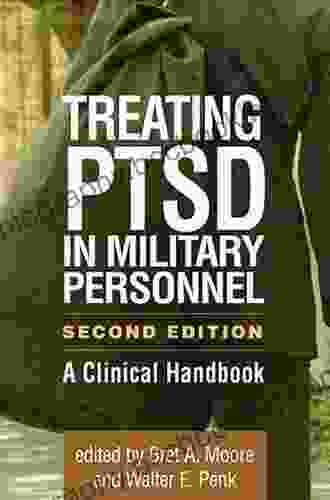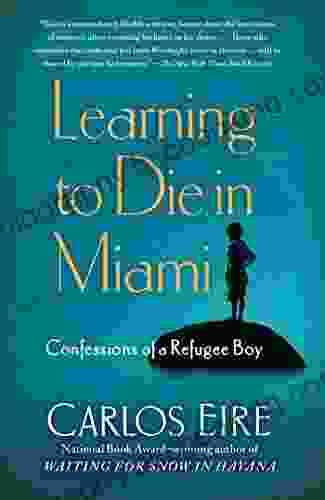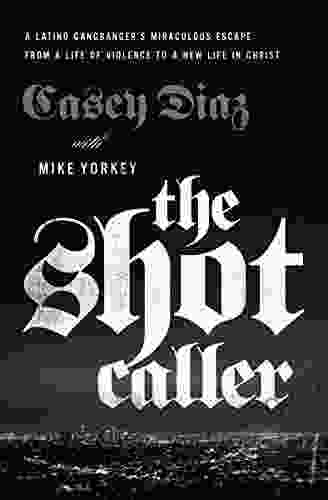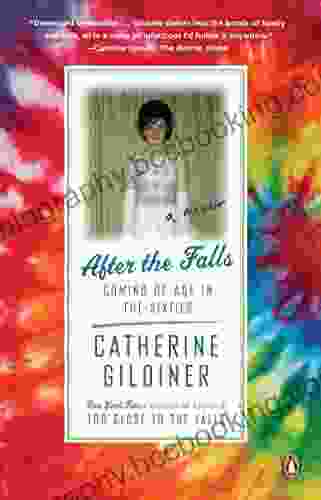Treating PTSD in Military Personnel, 2nd Edition: A Comprehensive Guide to Evidence-Based Trauma-Informed Care

4.7 out of 5
| Language | : | English |
| File size | : | 1679 KB |
| Text-to-Speech | : | Enabled |
| Screen Reader | : | Supported |
| Enhanced typesetting | : | Enabled |
| Word Wise | : | Enabled |
| Print length | : | 462 pages |
Post-traumatic stress disFree Download (PTSD) is a serious mental health condition that can develop after exposure to a traumatic event, such as combat exposure. Military personnel are at an increased risk of developing PTSD due to the nature of their service. The second edition of "Treating PTSD in Military Personnel" provides a comprehensive overview of the latest research and evidence-based treatments for PTSD in this population.
Symptoms of PTSD
The symptoms of PTSD can vary from person to person, but they typically include:
* Re-experiencing the traumatic event through flashbacks, nightmares, or intrusive thoughts * Avoiding situations that remind them of the traumatic event * Feeling numb and detached from others * Having difficulty sleeping or concentrating * Feeling irritable or angry * Engaging in risky or self-destructive behaviors
Risk Factors for PTSD in Military Personnel
There are a number of factors that can increase the risk of developing PTSD in military personnel, including:
* Experiencing combat exposure * Witnessing or experiencing death or injury * Being sexually assaulted or harassed * Having a history of trauma prior to military service
Evidence-Based Treatments for PTSD
There are a number of evidence-based treatments for PTSD, including:
* Cognitive Behavioral Therapy (CBT): CBT is a type of therapy that helps people to change their thoughts and behaviors. CBT for PTSD typically focuses on helping people to process the traumatic event, develop coping mechanisms, and manage their symptoms. * Exposure Therapy: Exposure therapy is a type of therapy that involves gradually exposing people to the things that they fear or avoid. Exposure therapy for PTSD typically involves helping people to confront their memories of the traumatic event in a safe and controlled environment. * Prolonged Exposure Therapy: Prolonged exposure therapy is a type of exposure therapy that involves helping people to repeatedly confront their memories of the traumatic event in a prolonged and intensive manner. * Cognitive Processing Therapy: Cognitive processing therapy is a type of therapy that helps people to identify and challenge the negative thoughts and beliefs that they have about the traumatic event. * Virtual Reality Therapy: Virtual reality therapy is a type of therapy that uses virtual reality technology to help people to confront their memories of the traumatic event in a safe and controlled environment. * Eye Movement Desensitization and Reprocessing Therapy: Eye movement desensitization and reprocessing therapy is a type of therapy that uses eye movements to help people to process the traumatic event and reduce their symptoms. * Dialectical Behavior Therapy: Dialectical behavior therapy is a type of therapy that helps people to regulate their emotions and behaviors. DBT for PTSD typically focuses on helping people to develop coping mechanisms, manage their symptoms, and improve their relationships. * Acceptance and Commitment Therapy: Acceptance and commitment therapy is a type of therapy that helps people to accept their thoughts and feelings and commit to living a meaningful life. ACT for PTSD typically focuses on helping people to develop coping mechanisms, manage their symptoms, and improve their quality of life. * Positive Psychology Interventions: Positive psychology interventions are a type of therapy that focuses on helping people to build their strengths and resilience. PPI for PTSD typically involves helping people to identify and develop their strengths, develop coping mechanisms, and improve their overall well-being. * Mindfulness-Based Interventions: Mindfulness-based interventions are a type of therapy that focuses on helping people to develop mindfulness skills. Mindfulness-based interventions for PTSD typically involve helping people to learn how to pay attention to the present moment, regulate their emotions, and develop coping mechanisms. * Yoga: Yoga is a mind-body practice that has been shown to have a number of benefits for people with PTSD, including reducing symptoms, improving sleep, and increasing resilience. * Meditation: Meditation is a practice that involves focusing the mind on a particular object or thought. Meditation has been shown to have a number of benefits for people with PTSD, including reducing symptoms, improving sleep, and increasing resilience. * Equine Therapy: Equine therapy is a type of therapy that involves working with horses. Equine therapy has been shown to have a number of benefits for people with PTSD, including reducing symptoms, improving self-esteem, and increasing resilience. * Art Therapy: Art therapy is a type of therapy that involves using art to express oneself. Art therapy has been shown to have a number of benefits for people with PTSD, including reducing symptoms, improving communication, and increasing resilience. * Music Therapy: Music therapy is a type of therapy that involves using music to express oneself. Music therapy has been shown to have a number of benefits for people with PTSD, including reducing symptoms, improving communication, and increasing resilience. * Service Dogs: Service dogs can provide a number of benefits for people with PTSD, including providing companionship, reducing symptoms, and improving safety. * Complementary and Alternative Medicine: There are a number of complementary and alternative medicine (CAM) therapies that have been shown to have potential benefits for people with PTSD, including acupuncture, massage therapy, and herbal medicine.
The second edition of "Treating PTSD in Military Personnel" is a comprehensive and up-to-date resource for clinicians and researchers who work with military personnel with PTSD. The book provides a thorough overview of the latest research on PTSD and evidence-based treatments. It also includes a number of case studies and vignettes that illustrate how these treatments can be applied in real-world settings.
If you are a clinician or researcher who works with military personnel with PTSD, I highly recommend that you add the second edition of "Treating PTSD in Military Personnel" to your library. It is an invaluable resource that will help you to provide the best possible care for your patients.
About the Author
Dr. Edna Foa is a professor of clinical psychology at the University of Pennsylvania. She is a leading expert on PTSD and has developed and tested a number of evidence-based treatments for the disFree Download. Dr. Foa is the author of over 200 scientific papers and book chapters on PTSD and has received numerous awards for her work.
Free Download Your Copy Today!
To Free Download your copy of "Treating PTSD in Military Personnel, 2nd Edition," please visit the following website:
[Insert website URL here]
4.7 out of 5
| Language | : | English |
| File size | : | 1679 KB |
| Text-to-Speech | : | Enabled |
| Screen Reader | : | Supported |
| Enhanced typesetting | : | Enabled |
| Word Wise | : | Enabled |
| Print length | : | 462 pages |
Do you want to contribute by writing guest posts on this blog?
Please contact us and send us a resume of previous articles that you have written.
 Book
Book Novel
Novel Page
Page Chapter
Chapter Text
Text Story
Story Genre
Genre Reader
Reader Library
Library Paperback
Paperback E-book
E-book Magazine
Magazine Newspaper
Newspaper Paragraph
Paragraph Sentence
Sentence Bookmark
Bookmark Shelf
Shelf Glossary
Glossary Bibliography
Bibliography Foreword
Foreword Preface
Preface Synopsis
Synopsis Annotation
Annotation Footnote
Footnote Manuscript
Manuscript Scroll
Scroll Codex
Codex Tome
Tome Bestseller
Bestseller Classics
Classics Library card
Library card Narrative
Narrative Biography
Biography Autobiography
Autobiography Memoir
Memoir Reference
Reference Encyclopedia
Encyclopedia Carolyn Nones Vazquez
Carolyn Nones Vazquez Caroline Vazzana
Caroline Vazzana Carol Clements
Carol Clements Carmen Micsa
Carmen Micsa C S Wilde
C S Wilde Carli Lloyd
Carli Lloyd Cate Kennedy
Cate Kennedy Carlos Magdalena
Carlos Magdalena C L Mississippi Morgan
C L Mississippi Morgan Caius A Mauricette
Caius A Mauricette Caterine Milinaire
Caterine Milinaire Caroline James
Caroline James Carrie Overton
Carrie Overton C Alan Jennings
C Alan Jennings Caela Carter
Caela Carter Carrie Saxifrage
Carrie Saxifrage Brynne Asher
Brynne Asher Byron Erickson
Byron Erickson Catherine Coleman Flowers
Catherine Coleman Flowers Bryan A Garner
Bryan A Garner
Light bulbAdvertise smarter! Our strategic ad space ensures maximum exposure. Reserve your spot today!

 Terence NelsonEscape into the Captivating World of Love with Harperimpulse's Mobile Shorts:...
Terence NelsonEscape into the Captivating World of Love with Harperimpulse's Mobile Shorts:...
 Guy PowellThe Politics of South Carolina Millhands, 1910-1948: A Story of Labor, Race,...
Guy PowellThe Politics of South Carolina Millhands, 1910-1948: A Story of Labor, Race,... Liam WardFollow ·12.7k
Liam WardFollow ·12.7k Charles BukowskiFollow ·2.9k
Charles BukowskiFollow ·2.9k Casey BellFollow ·13.1k
Casey BellFollow ·13.1k Doug PriceFollow ·15.7k
Doug PriceFollow ·15.7k Leo MitchellFollow ·5.9k
Leo MitchellFollow ·5.9k Dominic SimmonsFollow ·19.5k
Dominic SimmonsFollow ·19.5k Bernard PowellFollow ·13.4k
Bernard PowellFollow ·13.4k Damon HayesFollow ·15.2k
Damon HayesFollow ·15.2k

 Andy Hayes
Andy HayesUnveil the Rich Tapestry of Rural Life: Immerse Yourself...
Step into the enchanting pages of "Still...

 David Mitchell
David MitchellUnlocking the Depths of Cybersecurity: An In-Depth Look...
In the ever-evolving landscape of...

 Seth Hayes
Seth HayesUnlock the Secrets of Watercolor Landscapes: 37 Tools for...
Embark on a...

 Tyler Nelson
Tyler Nelson15 Insightful Answers to Questions on Uterine Fibroid
Uterine fibroids...

 Evan Hayes
Evan HayesAfrica In My Soul: A Literary Odyssey That Captivates the...
In a world where diverse cultures...
4.7 out of 5
| Language | : | English |
| File size | : | 1679 KB |
| Text-to-Speech | : | Enabled |
| Screen Reader | : | Supported |
| Enhanced typesetting | : | Enabled |
| Word Wise | : | Enabled |
| Print length | : | 462 pages |










